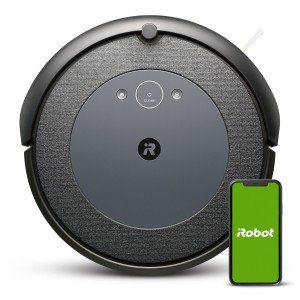See What Robot Vacuum Cleaner Comparison Tricks The Celebs Are Utilizing
Robotic Vacuum Cleaner Comparison: The Future of Home Cleaning
Recently, robotic vacuum have transformed the way we preserve tidiness in our homes. With improvements in innovation and the incorporation of expert system, these gadgets have developed from mere novelty items to necessary family devices. This short article offers a detailed comparison of some of the leading robotic vacuum on the market, assisting customers make informed choices when selecting a design that suits their requirements.

Comprehending Robotic Vacuum Cleaners
Robotic vacuum cleaners are autonomous machines created to clean floorings instantly. Equipped with sensing units, they navigate around barriers and adjust their cleaning paths for optimal performance. The essential features that distinguish different designs consist of suction power, battery life, app connection, navigation innovation, and price.

Key Features to Consider
When comparing robotic vacuum, possible purchasers need to take into consideration the following elements:
- Suction Power: Measured in Pascals (Pa), suction power figures out the effectiveness of picking up dirt and particles.
- Battery Life: The length of time a vacuum can run before requiring a recharge significantly affects its cleaning efficiency.
- Navigation Technology: Models might use basic random navigation or advanced mapping technologies (like LIDAR) that enable them to create a map of the home.
- Smart Features: Connectivity to smart device apps or smart home systems can enhance usability and control.
- Filter Type: HEPA filters are advised for allergic reaction patients, as they trap allergens and enhance air quality.
Comparison of Top Robotic Vacuum Cleaners
Below is a comparison table of a few of the best robotic vacuum readily available in 2023:
| Model | Suction Power (Pa) | Battery Life (minutes) | Navigation Technology | Smart Features | Price (GBP) |
|---|---|---|---|---|---|
| iRobot Roomba i7+ | 1700 | 75 | Smart mapping | App control, voice command | ₤ 949 |
| Roborock S7 | 2500 | 180 | LIDAR | App control, multi-floor | ₤ 649 |
| Neato D7 | 2000 | 120 | LIDAR | App control, zone cleaning | ₤ 599 |
| Ecovacs Deebot T10 | 3000 | 150 | Smart mapping | App control, space detection | ₤ 799 |
| Shark IQ robot vacuum cleaner comparison, view website, | 1200 | 90 | Random | App control, self-emptying | ₤ 399 |
Description of the Table
-
iRobot Roomba i7+: Known for its robust cleaning capability, it features smart mapping technology that permits it to designate particular locations for cleaning. Its self-emptying feature is a plus for convenience.
-
Roborock S7: This model stands out in suction power and battery life, making it perfect for larger homes. Its LIDAR technology helps develop an effective cleaning course, and it can vacuum and mop concurrently.
-
Neato D7: The D-shape style enables much better corner cleaning, and it includes strong suction power. Its LIDAR navigation allows it to draw up cleaning areas properly.
-
Ecovacs Deebot T10: Boasting the highest suction power and advanced navigation, this design can handle several floorings successfully. It’s a flexible choice for homes with differing floor types.
-
Shark IQ Robot: A budget-friendly option that still provides smart features. Its self-emptying capability and app integration make it a useful option for those trying to find a solid cleaning buddy without breaking the bank.
Benefits of Robotic Vacuum Cleaners
Robotic vacuum provide many advantages that add to their increasing popularity among customers:
- Time-Saving: Automated cleaning enables users to release up valuable time that can be spent on other activities.
- Convenience: Many models can be scheduled via apps to clean at particular times, lowering manual effort.
- Accessibility: They can reach under furnishings and in tight spaces where conventional vacuums might struggle.
- Daily Maintenance: Regular usage of robotic vacuums can help maintain a consistently clean environment, promoting much better overall home hygiene.
FAQs About Robotic Vacuum Cleaners
1. How frequently should I run my robotic vacuum?
It is advised to run the robotic vacuum at least 2-3 times a week to maintain cleanliness, though daily use can be advantageous, specifically in homes with animals or high foot traffic.
2. Do robotic vacuums work on carpets?
Yes, many robotic vacuums are designed to work on carpets, but effectiveness may differ based upon the model’s suction power and brush type. Look for designs particularly pointed out as efficient for carpets.
3. Can robotic vacuums tidy animal hair?
A lot of robotic vacuums can efficiently get pet hair, however those with strong suction and tangle-free brush designs are particularly well-suited for this job.
4. How do I maintain my robotic vacuum?
Routine maintenance includes cleaning the brushes and sensing units, emptying the dustbin, and periodically replacing filters to guarantee ideal performance.
5. Are robotic vacuums worth the investment?
While they tend to be more pricey than traditional vacuums, the benefit, effectiveness, and time-saving aspects make them a worthwhile financial investment for numerous households.
The marketplace for robotic vacuum continues to broaden as innovation progresses, providing consumers a variety of choices to suit various cleaning requirements and budget plans. By carefully thinking about functions such as suction power, battery life, and smart capabilities, users can choose a model that aligns with their lifestyle. Whether for convenience, ease of usage, or remarkable cleaning performance, robotic vacuums are unquestionably improving the future of home cleaning.


